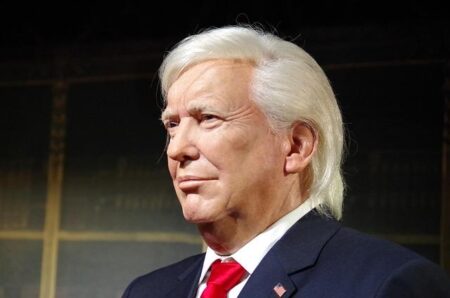Australia has deployed military aircraft to the Middle East as part of its ongoing commitment to regional security and counterterrorism efforts. The move, confirmed by government officials, underscores Canberra’s strategic role in supporting international coalitions aimed at stabilizing conflict zones. This latest deployment reflects Australia’s intent to reinforce its military presence in a volatile region amidst rising geopolitical tensions.
Australia Deploys Military Aircraft to Middle East Amid Rising Regional Tensions
In response to escalating tensions in the Middle East, Australia has dispatched several military aircraft to the region, signaling its commitment to support international security efforts. The deployment includes transport and surveillance planes, aimed at enhancing intelligence, reconnaissance, and logistical capabilities amid growing instability. Officials emphasize that this move is strictly defensive and designed to assist coalition partners in maintaining peace and security.
Key components of the deployment include:
- Advanced reconnaissance drones equipped for real-time intelligence gathering
- Transport aircraft capable of rapid force mobility
- Additional personnel specializing in regional operations and coordination
| Aircraft Type | Role | Deployment Duration |
|---|---|---|
| RAAF E-7A Wedgetail | Airborne Early Warning & Control | 6 months |
| C-27J Spartan | Tactical Transport | 4 months |
| Heron TP UAV | Unmanned Reconnaissance | Indefinite |
Strategic Implications of Canberra’s Airlift Mission for Regional Security Dynamics
Australia’s deployment of military aircraft to the Middle East marks a significant recalibration in its defense posture, reflecting an increased commitment to regional stability amid shifting geopolitical currents. This strategic move introduces a new dynamic in the security calculus of the Indo-Pacific, underscoring Canberra’s resolve to strengthen alliances and enhance interoperability with key partners. By projecting airlift capabilities into the Middle East, Australia signals its readiness to support coalition efforts, deter emerging threats, and maintain open lines of communication and supply in a region pivotal to global energy security.
Key implications of this mission include:
- Enhanced Regional Cooperation: Facilitates joint exercises and intelligence-sharing with allied forces, deepening trust and operational synergy.
- Geostrategic Influence: Allows Australia to assert a more pronounced presence beyond traditional boundaries, bolstering its diplomatic leverage.
- Deterrence Posture: Serves as a tangible demonstration of commitment that may deter non-state actors and rival powers seeking to destabilize critical maritime routes.
| Aspect | Impact | Reception |
|---|---|---|
| Military Mobility | Improved rapid deployment capabilities | Welcomed by allied nations |
| Diplomatic Messaging | Signals commitment to Middle East partners | Monitored attentively by regional rivals |
| Security Integration | Boosts joint operational readiness | Strengthens coalition frameworks |
Experts Urge Enhanced Diplomatic Engagement and Multilateral Cooperation to Stabilize the Area
Amid escalating tensions in the Middle East, prominent foreign policy experts emphasize the urgent need for intensified diplomatic efforts and broad multilateral cooperation. They warn that military interventions without a concurrent political strategy risk deepening instability across the region. According to several analysts, stabilizing the area requires not only addressing immediate security concerns but also fostering sustained dialogue between regional powers and international stakeholders.
Key recommendations from experts include:
- Reinvigorating peace talks under the auspices of the United Nations.
- Establishing joint security frameworks to prevent escalation.
- Enhancing humanitarian aid through coordinated international mechanisms.
- Encouraging confidence-building measures among conflicting parties.
| Priority Area | Proposed Action |
|---|---|
| Diplomatic Channels | Expand multilateral talks |
| Security | Implement joint monitoring forces |
| Humanitarian | Increase aid coordination |
| Conflict Resolution | Promote dialogue platforms |
To Wrap It Up
As Australia deploys military aircraft to the Middle East, the move underscores Canberra’s ongoing commitment to regional stability and international security efforts. The situation remains fluid, and further developments are likely to shape Australia’s strategic posture in the area. The New Daily will continue to monitor this story closely, providing updates as more information becomes available.



